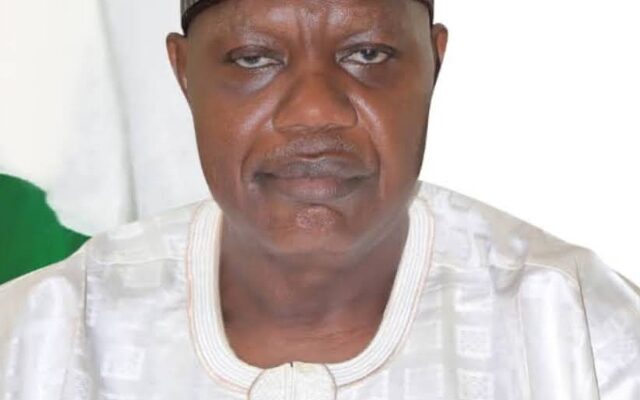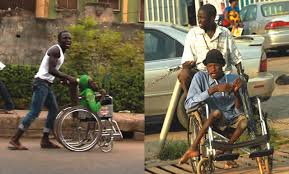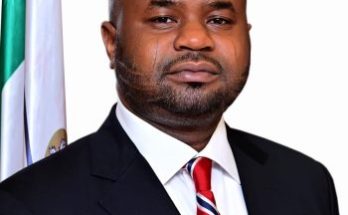Dr Iyela Ajayi is the Executive Secretary National Senior Secondary Education Commission (NSSEC) and former provost Federal College of Education Okene. In this interview with OYIBO SALIHU, he says the present administration has directed the commission to intervene by correcting the rots in all senior secondary schools in the country.
Why the establishment of NSSEC?
In April 2021, former President Muhammadu Buhari established the National Senior Secondary Education Commission (NSSEC) because it was discovered that only Senior Secondary Schools never had a regulatory body/ intervention agency at that time. For instance, primary and junior secondary education were regulated by Universal Basic Education Commission (UBEC), universities had National University Commission (NUC), Colleges of Education had National Commission for Colleges of Education (NCCE) and of course polytechnics had National Board for Technical Education (NBTE); therefore only Senior Secondary Education was treated like an orphan without a regulatory body/ intervention agency and that created a lot of problems for that level of education.
What are those problems?
Decayed infrastructure, ramshackled buildings, inadequate and qualified teaching staff, lack of learning aids, social vices, poor performance of students in external examinations, among others. Therefore, government in its wisdom decided that something must be done to arrest such abnomalies. It is a known fact that it is at the level of secondary school that skills are developed, character formed and it is the bridge between basic education and tertiary education. For example, if there is a bridge linking two communities and something happens to that bridge, the two communities would be cut off from each other and obviously suffer. That was exactly the way it was. Today we talk of social vices in the university system, but if we can control what is happening in the Senior Secondary level, social vices at the tertiary education level would be a thing of the past. Today, there are students in the tertiary institutions who cannot express themselves in simple English language, some cannot even write a simple grammer, but if we control what is happening at the Senior Secondary Education level, most of those problems would be a thing of the past. That was why the government of President Muhammadu Buhari in April 2021 established the commission to serve as regulatory body and intervention agency whether federal, states or private.
What are the mandates of NSSEC?
When the commission was established, it was given about 20 mandates, few of which include to prescribe and enforce minimum standard, intervene in Senior Secondary Education especially in the area of infrastructural development, embark on capacity building of teachers which is very important in the education system because you can have all the beautiful structures and facilities, but if there are no quality teachers it will amount to nothing. These are some of them.
Since your appointment, what has been your achievements?
Since my appointment about 10 months ago, we have been able to record some achievements. We now have a document on national minimum standard for Senior Secondary Education in this country. In February, stakeholders comprising commissioners for education, the directors of planning, research and statistics, educationists were invited to Abuja. During the meeting, the document was validated with the two ministers of education in attendance. When the document is finally approved by the National Council for Education later this year, it would be enforced in all Senior Secondary Schools across the country and would be mandatory for all to comply with. Schools can go above the minimum standard but not below it. For instance, if the national policy on education has declared that teachers to students ratio must be 1 to 40, we would ensure it is complied with including the number of teachers specified for each school. We will also look at the quality of teachers and how many of them are well trained, had ever attended workshops and fit to do the job. The commission would also be interested in the infrastructure of schools, library, laboratory, information and communication centre and numbers of classrooms. When fully implemented, the era of students learning under trees would be a thing of the past. President Bola Tinubu is passionate about quality education and that is what the national minimum is all about. A few months ago, I visited some schools to discover that apart from the principal, the only non teaching staff they have is one which is very ridiculous. As much as we have concern for teachers, we also extend that concern to non-teaching staff because they play vital roles in the administration of schools. We will also be interested in the condition of hostels for boarding schools.
Before the end of this year, the National Council on Education which is the highest policy making body on education would convene a meeting to give final approval to that document. We would sanction any school that violates the standard and the nature of the sanctions would be decided by the governing board of the commission.
Considering the number of Senior Secondary Schools in the country, how would the commission monitor them effectively?
In this country, there are about 37, 000 Senior Secondary Schools. To monitor all the schools, we have put in place measures and strategies that would enable us monitor all the schools despite the number and no matter the location. Aside these, we have come out with document on National Policy on Senior Secondary Education. We would send some copies to the commissioners of education across the country.
The commission was not only established to regulate senior secondary education in Nigeria, but to intervene in critical area of infrastructure. So if you hear that students are not performing well in WAEC, NECO, JAMB and other external examinations, that can be attributed to what is going on at the level of Senior Secondary Education which the commission is desirous of changing the narratives for the interest of our education system and the nation at large.
This year alone, the government is going to intervene in the upgrade of 50 Senior Secondary Schools across the country and I am happy to inform you that Kogi state is one of the beneficiaries.
You and your team visited some public and a private schools in Kogi state. What were your impressions and plans of the commission to intervene in their challenges?
I must commend the government and chief driver of education in Kogi state, commissioner for education, Mr Wemi Jones. The first school we visited was Government Science Secondary School Koton-Karfe. My impression is that there is need for intervention in the school. Erosion is a problem in that college and there are structures that need to be rehabilitated. For instance, there is need to provide modern and well equipped laboratories, ICT centre and a library for the school. Another of intervention is staffing because the college has about 587 students, but only 30 teachers which is grossly inadequate. This requires the state government’s attention. We have selected the school for our first intervention which shall go around in due course. We also visited GYB Model Science Secondary School Adankolo in Lokoja. It is a model school with all the basic facilities. I must commend the former governor who initiated and completed the school and it is being sustained by the present administration. We also visited Crowther Memorial College Lokoja. It is an old institution and I must commend the state government and the old boys of the school for their interventions in many areas for the school. The classrooms need rehabilitation, I am assuring that NSSEC would look into areas of intervention and how we can come in. I am assuring the state government that the federal government is committed to quality education and would leave no stone unturned in ensuring that we deliver on our mandates across the country.




